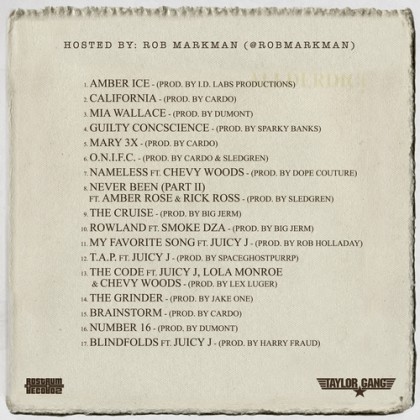
The next year began with Khalifa appearing on the cover of XXL as one of the magazine’s Top Ten Freshmen, while The Source named him Rookie of the Year. Unable to come to an agreement on his debut album for the label, the rapper announced he was leaving Warner in 2009 and returning to Rostrum for the album Deal or No Deal. In summer 2007, Khalifa and Rostrum hopped on board with Warner and Khalifa cut his first major-label single, "Young'n on His Grind." The follow-up, "Say Yeah," climbed into the Top 20 of Billboard's Hot Rap Tracks that same year, but the relationship between Warner Bros. With the release of his independent full-length debut, Show and Prove, later that year, major publications featured profiles on the young rapper.

Signed to Rostrum, Khalifa built a buzz in Pittsburgh with a few singles, but drew attention nationally during his senior year in high school when his first mixtape, Prince of the City: Welcome to Pistolvania, dropped in early 2006. Reid at Arista who had started a new independent label, Rostrum Records. Labs' staff to offer him free beats and recording time, and brought him to the attention of Benjy Grinberg, a former executive assistant to L.A. He stood out among the studio's regulars, prompting the I.D. Settling in Pittsburgh during his high school years, Khalifa laid down the groundwork for a solo career and kept busy recording music in a local studio, I.D. His first attempt at committing lyrics to paper was around age nine, and at 12 he was already recording and producing his own records in his father's Oklahoma studio. After his parents divorced when he was three, he lived in various places and military bases around the world. His charm, persona, and weedy wit have been in peak form from the time of his major-label debut, 2011's Rolling Papers, to 2022's more mature Multiverse.Ī military brat, Khalifa, whose real name is Cameron Thomaz, was born in 1987 in Minot, North Dakota. With a series of hits built around slick rhymes and slicker production, Khalifa moved from mixtapes to stadium anthems and even major motion-picture soundtrack collaborations with pop star Charlie Puth.

A perfect balance of pop hooks, effortless charm, and stoner rap swagger, Pittsburgh rapper Wiz Khalifa was one of the highest-rising stars of a certain sect of mainstream hip-hop in the 2010s.


 0 kommentar(er)
0 kommentar(er)
